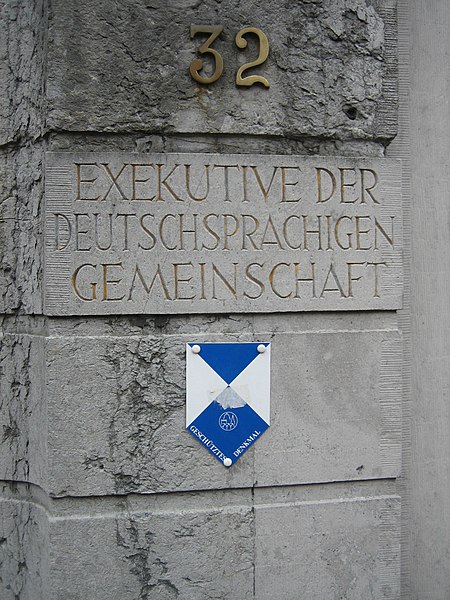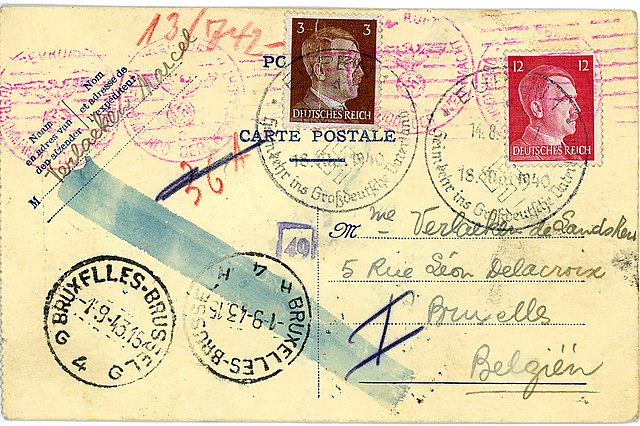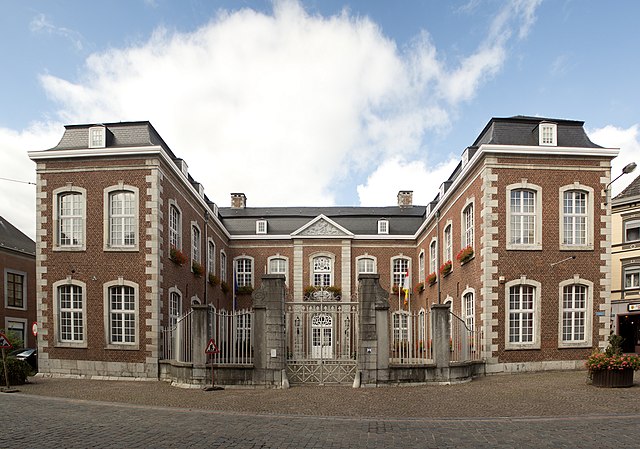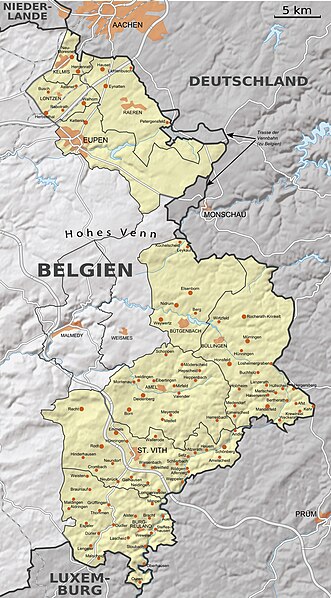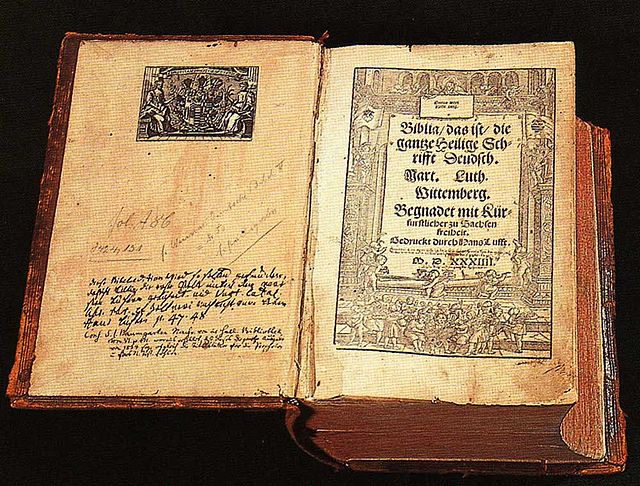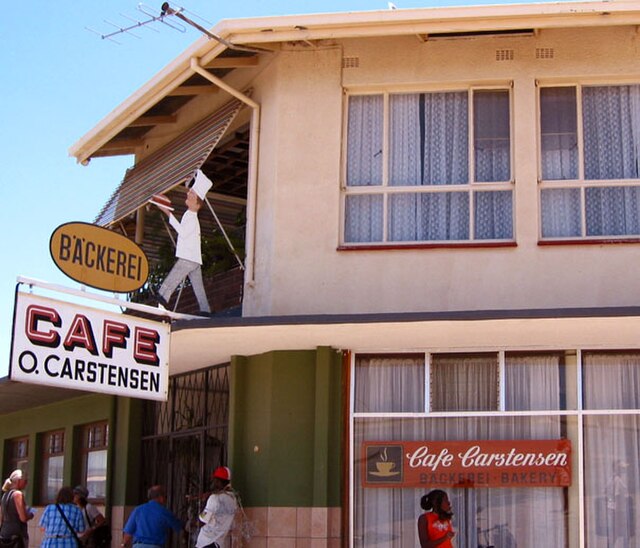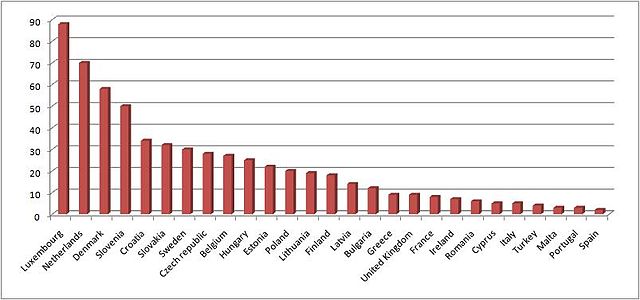German-speaking Community of Belgium
The German-speaking Community, also known as East Belgium, is one of the three federal communities of Belgium, with an area of 854 km2 (330 sq mi) in the Liège Province of Wallonia, including nine of the eleven municipalities of Eupen-Malmedy. The primary language of the community is German, making this the third official language in Belgium. Traditionally the community and the wider area around it forms an intersection of various local languages and/or dialects, namely Limburgish, Ripuarian and Moselle Franconian varieties. The community population numbers around 77,949 – about 7.0% of Liège Province and about 0.7% of the national total.
The Executive (government) of the German-speaking Community meets in Eupen.
1943 postcard; Nazi propaganda postmark reads Heimkehr ins Großdeutsche Vaterland ("Return to the Grand German Fatherland")
The seat of the Executive and Council of the German-speaking Community in Eupen
The Yellow municipalities are the German-Speaking community of Belgium, while the two grey municipalities (Malmedy and Weismes) were annexed from Germany after World War I as well, but natively speak French.
German is a West Germanic language in the Indo-European language family, mainly spoken in Western and Central Europe. It is the most widely spoken and official or co-official language in Germany, Austria, Switzerland, Liechtenstein, and the Italian province of South Tyrol. It is also an official language of Luxembourg and Belgium, as well as a recognized national language in Namibia. There further exist notable German-speaking communities in France (Alsace), the Czech Republic, Poland, Slovakia, Denmark, Romania and Hungary (Sopron).
Modern High German translation of the Christian Bible by the Protestant reformer Martin Luther (1534). The widespread popularity of the Bible translated into High German by Luther helped establish modern Standard German.
Bilingual German-English sign at a bakery in Namibia, where German is a national language
Self-reported knowledge of German as a foreign language in the EU member states (+Turkey and UK), in per cent of the adult population (+15), 2005
Swiss German restaurant sign in Andermatt: "Chuchichäschtli", in Standard German "Küchenkästlein"

